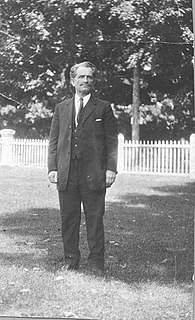A Quote by Jon Krakauer
At long last he was unencumbered, emancipated from the stifling world of his parents and peers, a world of abstraction and security and material excess, a world in which he felt grievously cut off from the raw throb of existence.
Related Quotes
Metaphysical world.- It is true, there could be a metaphysical world; the absolute possibility of it is hardly to be disputed. We behold all things through the human head and cannot cut off this head; while the question nonetheless remains what of the world would still be there if one had cut it off.
As long as I stared at the clock, at least the world remained in motion. Not a very consequential world, but in motion nonetheless. And as long as I knew the world was still in motion, I knew I existed. Not a very consequential existence, but an existence nonetheless. It struck me as wanting that someone should confirm his own existence only by the hands of an electric wall clock. There had to be a more cognitive means of confirmation. But try as I might, nothing less facile came to mind.
Buddha wrote a code which he said would be useful to guide men in darkness, but he never claimed to be the Light of the world. Buddhism was born with a disgust for the world, when a prince's son deserted his wife and child, turning from the pleasures of existence to the problems of existence. Burnt by the fires of the world, and already weary with it, Buddha turned to ethics.
It's not true that you should first think up an idea for a better world and only then "put it into practice," but, rather, through the fact of your existence in the world, you create the idea or manifest it - create it, as it were, from the "material of the world," articulate it in the "language of the world."
What I felt was, if you spend your life just writing fiction, you are going to falsify your material. And the fictional form was going to force you to do things with the material, to dramatize it in a certain way. I thought nonfiction gave one a chance to explore the world, the other world, the world that one didn't know fully.
The art of dharma practice requires commitment, technical accomplishment, and imagination. As with all arts, we will fail to realize its full potential if any of these three are lacking. The raw material of dharma practice is ourself and our world, which are to be understood and transformed according to the vision and values of the dharma itself. This is not a process of self- or world- transcendence, but one of self- and world- creation.
The wise men understood that this natural world is only an image and a copy of paradise. The existence of this world is simply a guarantee that there exists a world that is perfect. God created the world so that, through its visible objects, men could understand his spiritual teachings and the marvels of his wisdom.
Therefore, in this world he must prepare himself for the life beyond. That which he needs in the world of the Kingdom must be obtained here. Just as he prepared himself in the world of the matrix by acquiring forces necessary in this sphere of existence, so, likewise, the indispensable forces of the divine existence must be potentially attained in this world.
In the beginning of his human life man was embryonic in the world of the matrix. There he received capacity and endowment for the reality of human existence. The forces and powers necessary for this world were bestowed upon him in that limited condition. In this world he needed eyes; he received them potentially in the other. He needed ears; he obtained them there in readiness and preparation for his new existence. The powers requisite in this world were conferred upon him in the world of the matrix.
But myth is something else than an explanation of the world, of history, and of destiny. Myth expresses in terms of the world - that is, of the other world or the second world - the understanding that man has of himself in relation to the foundation and the limit of his existence. Hence to demythologize is to interpret myth, that is, to relate the objective representations of the myth to the self-understanding which is both shown and concealed in it.
The digestive canal is in its task a complete chemical factory. The raw material passes through a long series of institutions in which it is subjected to certain mechanical and, mainly, chemical processing, and then, through innumerable side-streets, it is brought into the depot of the body. Aside from this basic series of institutions, along which the raw material moves, there is a series of lateral chemical manufactories, which prepare certain reagents for the appropriate processing of the raw material.


































